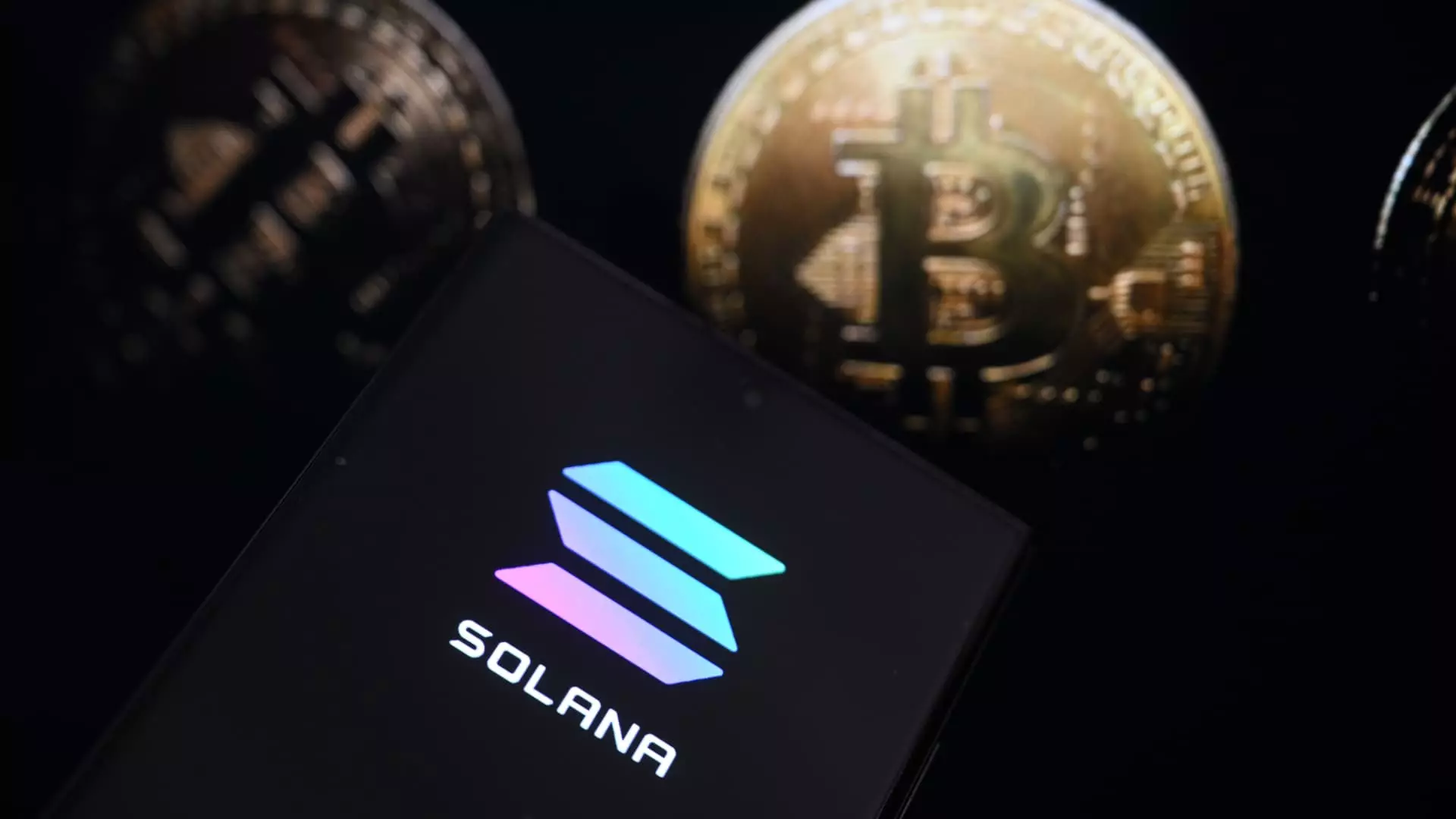In a striking maneuver that could reshape its financial future, Janover, the innovative software firm, has recently made headlines with its substantial purchase of $4.6 million worth of Solana’s SOL token. This acquisition signals the company’s aggressive pivot toward building a crypto-centric treasury management strategy aimed at establishing itself as a formidable player in the public markets. As its stocks soared nearly 64%, the market has responded enthusiastically, reflecting an undercurrent of optimism surrounding Janover’s potential to harness the fast-evolving crypto landscape.
Janover’s CEO, Joseph Onorati, emphasized the company’s commitment to transparency and efficiency in the accumulation of crypto assets. This pledge is not merely a formality; it encapsulates a strategic vision that aims to capitalize on the growing acceptance and integration of cryptocurrencies into traditional business models. However, this bold approach raises critical questions about the sustainability and timing of such investments in an environment marked by extreme volatility.
Restructuring and Rebranding: A New Era for Janover
Following a significant restructuring, Janover is transitioning its brand identity to the DeFi Development Corporation. This shift not only indicates a change in focus but also suggests a broader ambition to align with decentralized finance principles. The company, founded in 2018, has recently come under the leadership of several former Kraken executives who have a storied track record in the crypto space. This synergy between experienced management and a fresh vision enacts a paradigm where software development and cryptocurrency accumulation go hand in hand.
However, this kind of drastic rebranding and restructuring often poses inherent risks. Navigating the complex waters of cryptocurrency investment requires agility and keen market insight. Janover’s commitment to actively accumulating SOL tokens, in a similar manner to what MicroStrategy has done with Bitcoin, sets a precedent that many will watch closely. Yet, in such a speculative climate, the potential for miscalculation looms large, as demonstrated by recent price fluctuations of the SOL token itself.
The Risks of Cryptocurrency Investment
Despite the initial hype, the volatility of the cryptocurrency market cannot be overlooked. The fact that the SOL token plunged over 8% shortly after any gains are alarming. In a broader financial context, risk assets have taken a hit, leading to questions on whether Janover’s optimistic projections can withstand market pressures. With SOL down 43% this year, investor sentiment could swiftly flip from exuberance to skepticism, especially as more funds pour into the volatile landscape of digital currencies.
Janover’s ambition to gather validators to support and secure the Solana network is indeed a constructive strategy aimed at creating additional revenue and reward streams. By staking SOL tokens, the company could alleviate some pressure from market volatility, but this raises another question: can these validators pay off in an uncertain market? High returns often accompany high risks, particularly when they are tied to such unpredictable assets.
Embracing the future of finance, Janover seems earnest in its quest to cement itself in the crypto domain. However, the trials and tribulations of managing such a volatile portfolio need careful accounting. Being proactive is commendable, but being strategic is imperative for long-term success in the turbulent waters of cryptocurrency investment.

